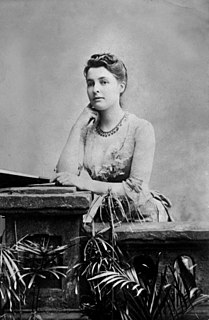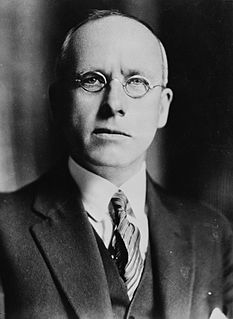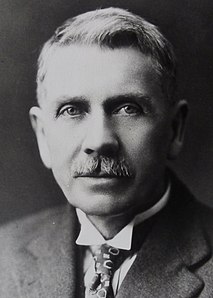Related Research Articles
The New Zealand Labour Party, or simply Labour, is a centre-left political party in New Zealand. The party's platform programme describes its founding principle as democratic socialism, although observers describe Labour as social-democratic and pragmatic in practice. The party participates in the international Progressive Alliance.

Martha Beatrice Webb, Baroness Passfield,, was an English sociologist, economist, socialist, labour historian and social reformer. It was Webb who coined the term collective bargaining. She was among the founders of the London School of Economics and played a crucial role in forming the Fabian Society.

The Christian Heritage Party of New Zealand was a New Zealand political party espousing Christian values and conservative views on social policy. Although it never won seats in an election, it came close to doing so in 1996 as part of the Christian Coalition and briefly had a member in Parliament.
The Co-operative Party is a centre-left political party in the United Kingdom supporting co-operative values and principles. Established in 1917, the Co-operative Party was founded by co-operative societies to campaign politically for the fairer treatment of co-operative enterprise and to elect 'co-operators' to Parliament. The party's roots lie in the Parliamentary Committee of the Co-operative Union established in 1881.

The New Zealand Social Credit Party is a political party which served as the country's "third party" from the 1950s through into the 1980s. The party held a number of seats in the New Zealand House of Representatives, although never more than two at a time. It renamed itself the New Zealand Democratic Party from 1985 to 2018, and was for a time part of the Alliance from 1991 to 2002.

James Shaver Woodsworth was a pioneer in the Canadian social democratic movement. While studying at Oxford, he became interested in social welfare, and upon his return to Canada as a minister of the Methodist church he preached the Social Gospel to the poor and the working classes of Manitoba. As the superintendent of the All People's Mission in Winnipeg and the secretary of the Canadian Welfare League he focused on investigating social conditions, worked with immigrants and campaigned for social welfare.
The United Party of New Zealand, a party formed out of the remnants of the Liberal Party, formed a government between 1928 and 1935, and in 1936 merged with the Reform Party to establish the National Party.
The Social Democratic Party of New Zealand was an early left-wing political party. It existed only a short time before being amalgamated into the new Labour Party. During its period of existence, the party held two seats in Parliament.
The New Zealand Democrat Party was a political party in New Zealand, founded in 1934 with the purpose of opposing socialist legislation by the government.

The 1943 New Zealand general election was a nationwide vote to determine the shape of the New Zealand Parliament's 27th term. With the onset of World War II, elections were initially postponed, but it was eventually decided to hold a general election in September 1943, around two years after it would normally have occurred. The election saw the governing Labour Party re-elected by a comfortable margin, although the party nevertheless lost considerable ground to the expanding National Party.

Sir Joseph George Ward, 1st Baronet, of Wellington, was a New Zealand politician who served as the 17th Prime Minister of New Zealand from 1906 to 1912 and from 1928 to 1930. He was a dominant figure in the Liberal and United ministries of the late 19th and early 20th centuries.
The People's Movement was a political party in New Zealand. It was active in the late 1930s and early 1940s, and was individualist in outlook. It campaigned for a reduction in the size of government, a reform of the civil service, a limit on the powers of political parties, and an end to the governing Labour Party's "socialist" policies.

William Andrew Veitch was a New Zealand politician. He began his career in the labour movement, but was a strong opponent of socialism, and rejected the militant views held by many of his colleagues.
Albert Ernest Davy was a New Zealand political organiser and campaign manager; and at the height of his career, was regarded as one of the best in the country. He was a strong opponent of socialism, and spent most of his life fighting what he saw as socialist tendencies in New Zealand politics.

Labour and Co-operative Party is a description used by candidates in United Kingdom elections who stand on behalf of both the Labour Party and the Co-operative Party.
Socialism in Canada has a long history and is, along with conservatism and liberalism, a political force in Canada.

Thomas Edward Taylor was a Christchurch mayor, New Zealand Member of Parliament, businessman and prohibitionist.

George Witty was a New Zealand Member of Parliament for Riccarton, in the South Island.
The Mana Movement, formerly known as the Mana Party, is a New Zealand political party led by Hone Harawira which was formed in April 2011 following his resignation from the Māori Party. Harawira won the by-election in Te Tai Tokerau of 25 June 2011 for the Mana Party and retained the seat during the 2011 general election, but lost it in 2014 and 2017 to Labour Party candidate Kelvin Davis.
The Real Democracy Movement of New Zealand was a short-lived political movement in New Zealand founded in 1942. The Social Credit Movement decided to set up a "separate political organisation" the “Real Democracy Movement” at their annual conference in January 1942, but the RDM got only about 4,400 votes in the 1943 election.
References
- ↑ "New Political Party". Papers Past. 4 December 1941.
- ↑ "A New Party". Papers Past. 4 December 1941.
| This article about a New Zealand political party is a stub. You can help Wikipedia by expanding it. |